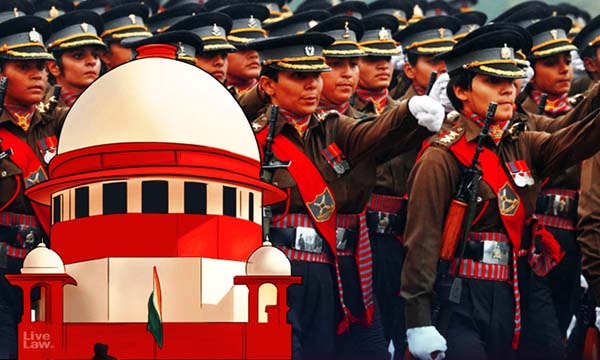
Follow WOWNEWS 24x7 on:

The Supreme Court of India has reignited a crucial debate on gender parity in the armed forces, asserting that female and male Army officers cannot be evaluated on identical criteria for the grant of Permanent Commission (PC). This development comes amid ongoing hearings of over 75 petitions filed by Short Service Commission (SSC) women officers who allege systemic discrimination in their career progression.
Key Developments from the Supreme Court Hearing
- The bench, comprising Justices Surya Kant, Ujjal Bhuyan, and N Kotiswar Singh, emphasized that male and female officers constitute "two unequal and distinct classes" and should not be assessed using the same cut-off marks and selection parameters.
- The court was hearing petitions from both serving and released SSC women officers who were denied PC during the December 2020 Selection Board No. 5 review.
- Interim orders restraining the Centre from releasing these officers from service remain in force until final adjudication.
Core Arguments Raised by Petitioners
1. Violation of Equality Principles
Senior advocate Huzefa Ahmadi argued that applying identical selection criteria to both genders violates constitutional principles of equality. He cited the January 15, 1991 policy, which mandates vacancy calculations based on inter-se batch strengths rather than uniform cut-offs.
2. Erroneous Vacancy Calculations
Petitioners claimed that the 2010 batch was unfairly denied PC due to miscalculated vacancies. The selection board meeting, originally scheduled for June 2020, was postponed, and 53 officers were later rejected citing lack of vacancies.
3. Casual Grading and Bias
Several officers alleged that their Annual Confidential Reports (ACRs) were graded casually and that they were denied equal opportunities compared to male counterparts.
4. Need for Gender-Sensitive Evaluation
Advocates Menaka Guruswamy and V Mohana highlighted the need for revised evaluation metrics that account for physiological and operational differences without compromising merit.
Supreme Court’s Observations and Proposals
- The bench proposed the formulation of uniform guidelines for granting PC but stressed that factors like specialized training and operational roles must be considered.
- It posed a direct question to the officers: What should be the ideal basis for PC assessment?
- The court acknowledged the morale implications of denying PC and reiterated its earlier stance from May 9, urging the Centre not to release officers prematurely.
Wider Implications and Next Steps
- The court plans to hear similar pleas from Naval and Air Force officers who have also challenged denial of PC.
- The hearing remains inconclusive and is scheduled to continue on August 7.
- The outcome could potentially reshape career trajectories for hundreds of women in uniform and redefine institutional policies on gender equity in the armed forces.
Sources: Daily Excelsior, Hindustan Times, NDTV, The Hindu, and Amar Ujala.


